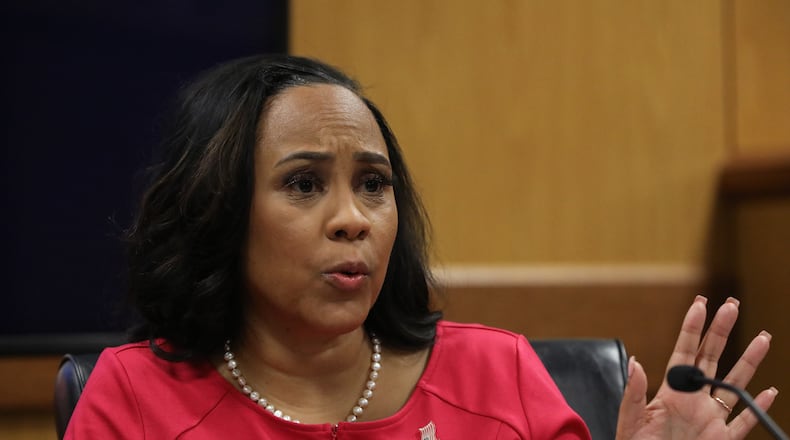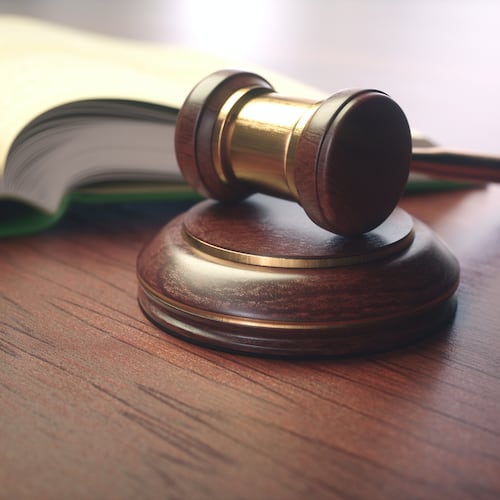Fulton County Superior Court began sending thousands of pages of documents to the Georgia Court of Appeals over the weekend, teeing up the second round of fighting over Fulton District Attorney Fani Willis’ leadership of the election interference case involving former President Donald Trump and others.
The office of Ché Alexander, clerk of Superior and Magistrate Courts, sent the appeals court transcripts and other records from three of the nine defendants who are seeking Willis’ removal from the case, Michael Roman, David Shafer and Cathy Latham. The documents for another, Bob Cheeley, appear to be in the process of being transmitted, according to court filings.
The appeals court requires the records in order to docket the case and assign judges to it.
The documents, which total upward of 1,700 pages per defendant, include copies of the indictment, bond orders, prior court filings and rulings from Fulton Superior Court Judge Scott McAfee. They also include transcripts of the February evidentiary hearing that included sworn testimony from Willis and Nathan Wade, the former special prosecutor whose romantic relationship with the DA prompted defendants’ push to remove the entire office from the case.
A spokesman for Alexander did not immediately respond to requests for comment.
McAfee issued a ruling in March that allowed Willis to stay on the case, but only if Wade departed the prosecution. Wade authored his letter of resignation that day, but that didn’t satiate the defendants, who said Willis still had a conflict of interest that warranted her removal. They appealed McAfee’s ruling, and the appeals court agreed earlier this month to take up the matter — but the Superior Court had to send over the court record before its consideration could begin.
Christina Cooley Smith, deputy court administrator for the Court of Appeals, said the body will wait until it receives documents from all nine of the participating defendants before docketing the case. Once that occurs, the court’s computer system will randomly assign a panel of three judges to hear the matter.
It is then up to the judges to decide whether and when they would like to hear oral argument in the case. The Georgia Constitution mandates that the matter must be decided within two terms of court, which means the justices would need to rule before mid-March 2025.
The pace coming out of Superior Court is considered lightning fast by Fulton standards, according to observers who closely follow the court. They said it often takes months or longer for court records to be transmitted.
Both Alexander and Willis are on the ballot on Tuesday. Alexander is facing three challengers in the Democratic primary, while Willis is being challenged by attorney Christian Wise Smith, whom she defeated four years ago.
Keep Reading
The Latest
Featured





